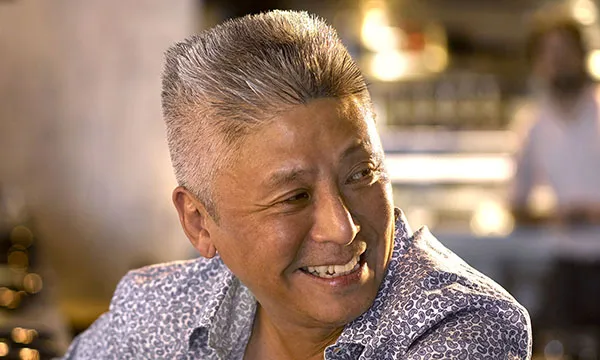
Elite Concepts savours the taste of success
Food connoisseurs in Hong Kong know that to enjoy a quality dining experience, a restaurant from Elite Concepts is their best bet. With a diverse menu of Japanese, Italian, French, Chinese, and American cuisines, the group behind Michelin star restaurants Yè Shanghai and Nanhai no.1 has been giving Hong Kong a taste of the world over the past two decades. Under usual circumstances, 10 to 15 years seems to be a life span for restaurants in big cities, let alone in Hong Kong — a place that has billed itself as a gastronomy hub. Yet, the 25-year-old Elite Concepts still thrives today, drawing epicures and partygoers.
With an ambition to “open up a new dining world conceiving new concepts which can delight food lovers,” Paul Hsu, founder and executive director of Elite Concepts, diverged from the norm of securing high-traffic locations in favour of quiet alleys such as Lan Kwai Fong and Knutsford back in the day. The group began life at Lan Kwai Fong in 1991 with The American Pie, a dessert joint offering apple crumbles as well as cream cakes and pies at a time when American desserts had limited supply in Hong Kong.
It snowballed quickly. The group opened some 12 more outlets throughout the 1990s. Now with seven brands on its plate, Elite Concepts has gained a significant foothold in the local culinary scene with Yè Shanghai at Pacific Place, as well as Nanhai no.1 and Eyebar for elite dining at iSQUARE.
The group added two brands to its roster in 2016 with the arrival of QMO and Deng G Classic Sichuan & Baijiu Bar in Wan Chai. Another brand that the customers love is the unique taste of chakeli tea infused ganache and chocolate bonbons. “It’s an era of sharing,” says the entrepreneur. “We are simply sharing what we think is good by transforming concepts into something physical.”
The group’s longevity is dictated largely by filling the culinary gap with new elements. “Good food is just the fundamental, many other elements count,” he says. “We know we are going far and beyond, and we keep working on new chemistries, surprising our customers with something from time to time.”
Going global
To gain a foothold in the global food universe, the group has grabbed a slice of the mushrooming restaurant scene on the mainland with a Shanghai branch of its Yè Shanghai brand, as well as the Duck de Chine which opened in Beijing in 2011. “It’s what we keep working on, demographically and geographically,” says the restaurateur.
“Above all, we think globally. We have a clear idea of our position in the market and who our customers are.With this in mind, we have product diversification riding on our target market, giving us another clear direction of development. You can now find an Elite Concept far beyond Hong Kong, and our offerings cater to people all over the world,” explains Hsu.
The success of a restaurant chain hinges on keeping the springs of existing brands wound up, while building the gears for the upcoming ones. With eight brands under its belt across Greater China, having each outfit operate cohesively under the same umbrella whilst keeping their own charisma is crucial. “The outlets in our group are playing the game together very well, helping each other, resulting in an excellent synergy,” he says.
“We never try to set customers into segments. Each of our brands has its fans. Time will tell and you will know where your potential customers are and deploy accordingly.” As the number of Chinese tourists shrinks, he admits economic downturn in retail and F&B may be one of the biggest changes in 2016. “It could be a very big blow, but good that it sets an alarm for us for careful precautions ahead of time.”
A short supply of labour in the F&B market may be another challenge, he continues. “We are grateful our staff are rather stable in a time of a labour shortage.”
If there’s one crucial component that keeps the group chugging along in this F&B market, it’s the vision to gravitate towards a globally oriented company. “When all the elements are ready to build a brand, sustainability may be the key to decide whether the brand can be a success,” he says. “We will have a bigger family with newer brands and branches, covering more cities, and across the continent.”








![Cross Domain [Manu + SBR + ABF + ABR + FMCG + HBR + ]](https://cmg-qa.s3.ap-southeast-1.amazonaws.com/s3fs-public/styles/exclusive_featured_article/public/2025-01/earth-3537401_1920_4.jpg.webp?itok=WaRpTJwE)









 Advertise
Advertise


